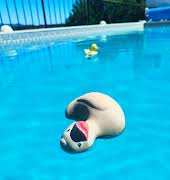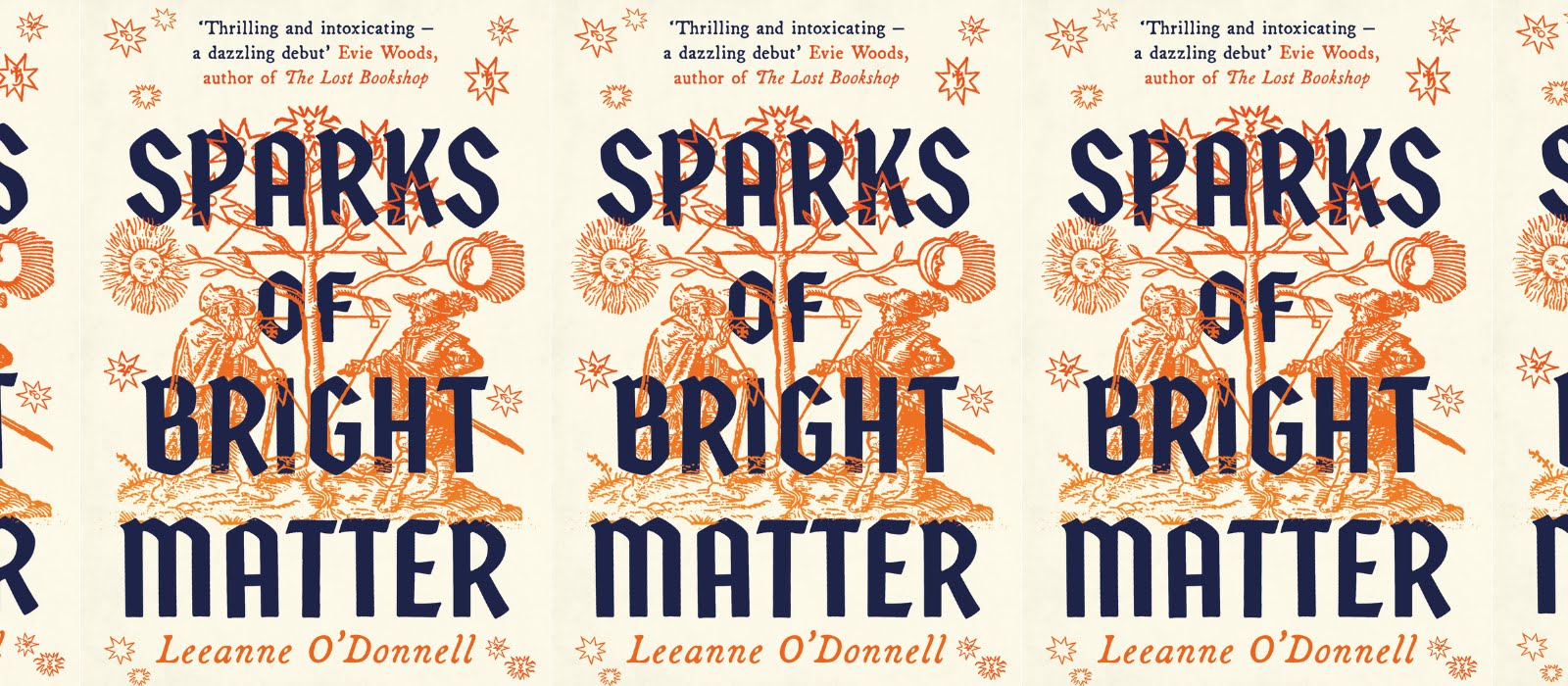
Read an extract from Leeanne O’Donnell’s debut novel, Sparks of Bright Matter
Set in 18th-century London and Cork, Sparks of Bright Matter tells the story of the last alchemist, Peter Woulfe.
Set in 18th-century London and Cork, Sparks of Bright Matter tells the story of the last alchemist, Peter Woulfe. Torn between magical thinking and rational thought, Woulfe seeks enlightenment, but instead “he falls in love with the fascinating Sukie, is diverted by lust and embroiled in a dangerous Jacobite plot involving a mysterious book, the Mutus Liber, and a cat-and-mouse chase across London”.
Sparks of Bright Matter has been described as a spell-binding and unputdownable tale about spirit and matter, love and lust, and reality and magic.
Debut author, radio documentary maker and podcast producer Leeanne O’Donnell was born in Dublin but lives in Ballydehob, West Cork. She credits the beautiful landscape there as inspiration for the novel to the extent that it appears as a character.
Read on for an extract from the newly released title…

Peter Woulfe possesses a number of human skulls, and amongst his collection is the skull of a young adult male. When he crouches to examine Mal, it is this smooth, clean skull he holds in his mind’s eye and not the blood-clotted mass before him. He sees how the temporal bone, caught at a weak point, has yielded beyond repair.
He has, in his fifty-three years, seen countless broken bodies, considers himself to have a strong stomach, a cool, experienced head. But this time, something is different. He is all a-tremble, quite horrified by what he has done, quite unbalanced. He believes he can taste the metallic tang of blood in the air; he can certainly smell it, and he moves his hand to cover his nose.
His eyes move to Mal’s thick, brown hair, and just above the ear, Peter Woulfe sees pale and greasy flakes of scalp – larger and greasier than he would have imagined. It is not that he deems Mal’s scalp to be unclean as such, but the proximity of the boy’s imperfect humanity turns his stomach as even the blood could not, and he moves his head abruptly and empties his belly upon the rug.
He is now assaulted, his senses excruciatingly alive, by the smell of blood, the stench of his own vomit and the particular scent of greasy, flaking scalp.
He wants more than anything to be elsewhere. He would like to leap up and walk swiftly, even run, across the room, out the door, down the stairs and thus into the outside world – where he could keep walking, running, moving quickly until he leaves the smells and the broken boy far behind him.
His body in fact begins to move of its own volition – his legs start to straighten, and his head turns towards the door, before his mind catches up, and he pauses. And as he lets gravity pull him down again, a low animal moan escapes him.
It is, amongst other things, extremely inopportune timing. Peter Woulfe places the index finger of his right hand into his mouth and bites down on it. Just before the world came into focus not five minutes earlier, he saw something altogether new in the book he has been scrutinising for more than thirty years. Something extremely important, which he has now forgotten.
He puts his hand on the boy’s wrist; he cannot detect a pulse. There will of course be questions. He knows he can prepare himself to provide satisfactory answers. But then there is the matter of time.
He sees this day and probably the next one evaporate in a series of exchanges about this dead boy. His head begins to feel like a steam-kettle without an outlet, and each new thought surges with unwelcome pressure.
Into Peter Woulfe’s head comes, fully formed and clear, the image of Robert Perle’s smooth, capable face – and despite his efforts to review his options, his mind settles stubbornly on Robert Perle. It becomes clear to him that Perle alone has the competence to manage the situation, but there is also something unusually clean about Perle that serves as an antidote to his present feelings of disgust.
He could write a note. He could say, come at once. It would be quite simple; then he could run down the stairs to the porter’s desk and ask Jagoe, keeping his voice even to avoid suspicion, to have it sent to Perle with utmost haste. There are urchins everywhere waiting to run across London for a hapenny.
He reaches for his pen – the nub needs sharpening, but it suffices . . . and so he writes:
Perle,
Come at Once.
Woulfe
It is when Robert Perle enters the room twenty minutes later, bends to the boy and declares him dead, that Peter Woulfe begins to cry silently – thick, fat tears escaping down his cheeks.
Perle notes them with swiftly hidden astonishment and says, ‘Yes, a most unfortunate accident,’ gazing diplomatically down at his own feet. ‘But never worry, Woulfe – we shall have him away in a trice.’
In fact, Perle knows that it will take more than a trice to remove the boy without exciting comment.
His mind begins to whirr, and it seems to him that his own man, Gorridge, would be best placed to secure the services of two stout urchins who could carry the body out under cover of darkness. And Perle himself knows of a resurrection man down by the docks who will pay ready money for a fresh corpse.
He turns to Peter Woulfe, puts his hand upon his arm (something that Woulfe dislikes) and says firmly, ‘I shall send for help, for assistance of the most discrete kind, and in the meantime, you will take yourself down to the Temple Coffee House and await me there.’
As this is what he wants to do more than anything, Peter Woulfe pauses and stares out the window. The question of whether he can trust Perle arises in his mind. He does not like to think of Perle alone in his rooms. He is beginning to shape a sentence suggesting that he, too, will stay and assist, when out of the corner of his eye, he perceives a slight movement on the ground. He moves his head and looks intently at Mal’s body on the floor. There is no movement now, none at all, but he could not swear to it – not even now, with the inert body before him – that his eyes were merely tricked by his overwrought imagination.
This ghost of a flicker of possible movement is too much for him, and he knows now that he must leave immediately. He must be away, irrespective of the risks. He looks closely at Perle, prepared to be reassured, and is dismayed beyond all proportion to note that Perle is uncharacteristically imperfectly shaved – just above his jaw-line there lies a dark patch of growth that the barber has missed.
But Robert Perle – entirely unaware that he is anything other than perfectly presented – turns to hold Peter Woulfe’s gaze, his bright – brown eyes alive with an air of confidence and certainty.
‘It is much the best way, Woulfe.’
Peter Woulfe nods, but as he moves quickly towards the door, he is aware that he is doing so against his wiser judgement. His mind is filled with the image of Perle’s jaw-line, the hairs sprouting defiantly along the smooth plane of his cheek. He does not look back at the heap on the floor, does not choose to risk it, but just as he reaches the door, he believes he detects a soft scraping noise, the kind of sound that fingernails might make if they were drawn across a wooden floor by the clenching and unclenching of a weakened hand. And so he increases his pace, his feet clattering, his face wet with tears, and gallops down the stairs of Barnard’s Inn and out into Fetter Lane.
‘Sparks of Bright Matter’ by Leanne O’Donnell (€15.99) is on sale now.



















